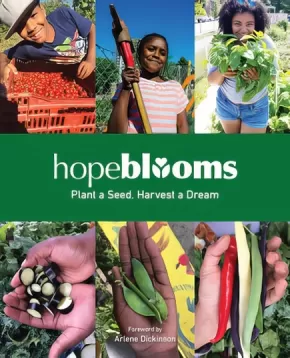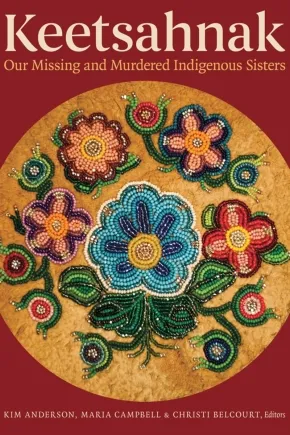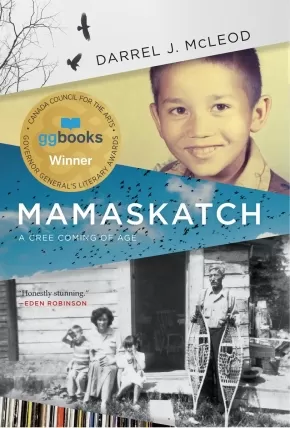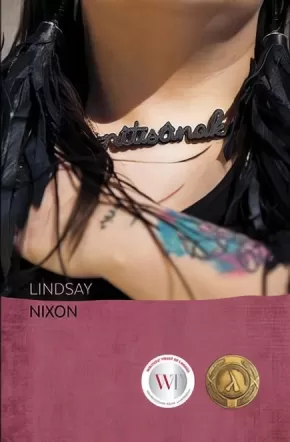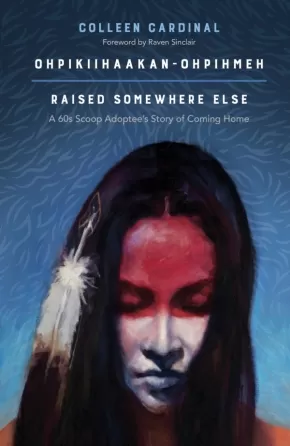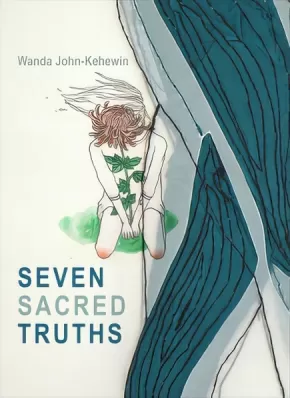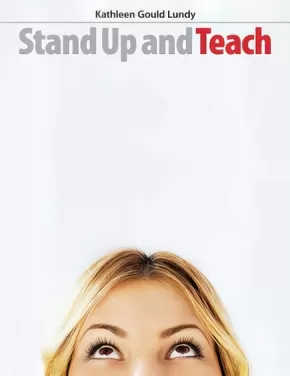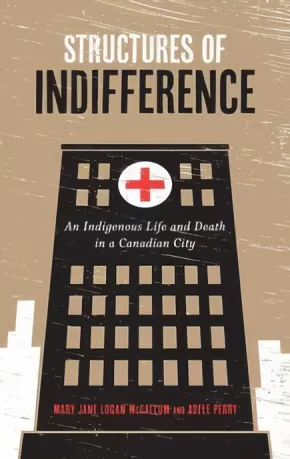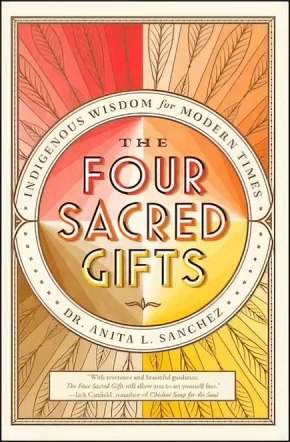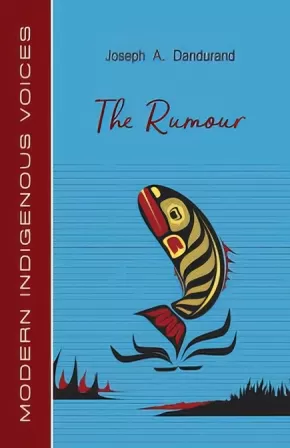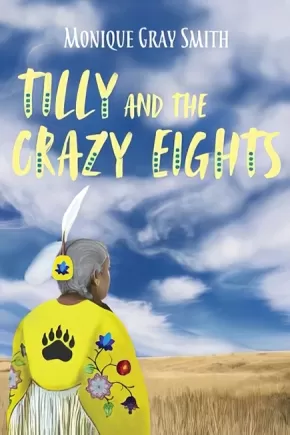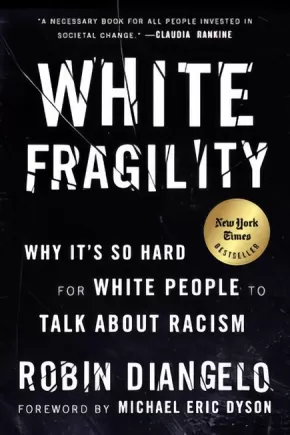Healing and Wellness
Synopsis:
Family Walks and Hikes is an exciting new series of books written specifically for outdoor enthusiasts of all ages and abilities. These accurate, attractive guides feature expertly curated routes, informative maps and colour photographs.
The first book in this highly anticipated new series assembles an impressive variety of walks and hikes for visitors and locals looking for unique, guided wanderings in the area between Victoria and Nanaimo, including:
- Millstone Falls
- Westwood Lake
- Colliery Dam Park
- Nanaimo River
- Yellow Point Park
- Chemainus Lake
- Mount Tzouhalem
- Spectacle Lake Provincial Park
- Niagara Falls and Goldstream Trestle Bridge
- Tod Inlet
- Mount Work
- Beaver Lake
- Mount Douglas
- Devonian Park
- Avatar Grove
- Lizard Lake
Ranging from charmingly easy to moderately challenging, these hikes are all accessible from reliable roads and popular staging areas. In addition, each hike is accompanied by a clear, colourful map, step by step directions and full-colour photographs.
Each route includes:
- detailed directions to trailheads
- colour maps and photographs
- seasonal information
- round-trip distances
- trail commentary
- difficulty ratings
Additional Information
192 pages | 5.50" x 8.50"
Synopsis:
There is an old saying that it takes a village to raise a child, but Jessie Jollymore has experienced through the youth of Hope Blooms, an inner-city initiative she founded that engages at-risk youth, that sometimes it takes the children to raise the village. A dietitian who worked in inner city health for 15 years, Jollymore witnessed the challenges people face every day with food security, isolation, discrimination, and poverty. An idea bloomed of creating sustainable, youth-driven micro-economies: growing local food systems, growing social enterprises, and mentoring youth to become leaders of change. This led to over 50 youth ages 6 to 18 leading the way in growing over 3,000 pounds of organic produce yearly for their community, building innovative outdoor classrooms, and building a successful Fresh Herb Dressing social enterprise, with 100% of proceeds going toward growing food, and scholarships for youth.
In this inspiring, vibrant book, the youth behind Hope Blooms tell the story of the social enterprise they built from the soil up, the struggles of "creating something from nothing," successfully navigating the world of business, and ultimately building resilience and leaving behind a legacy. Includes youth's words of wisdom, stories, and poetry, and over 75 colour photos.
Additional Information
180 pages | 7.50" x 9.25"
Synopsis:
In Keetsahnak / Our Murdered and Missing Indigenous Sisters, the tension between personal, political, and public action is brought home starkly as the contributors look at the roots of violence and how it diminishes life for all. Together, they create a model for anti-violence work from an Indigenous perspective. They acknowledge the destruction wrought by colonial violence, and also look at controversial topics such as lateral violence, challenges in working with “tradition,” and problematic notions involved in “helping.” Through stories of resilience, resistance, and activism, the editors give voice to powerful personal testimony and allow for the creation of knowledge.
It’s in all of our best interests to take on gender violence as a core resurgence project, a core decolonization project, a core of Indigenous nation building, and as the backbone of any Indigenous mobilization. —Leanne Betasamosake Simpson
Contributors: Kim Anderson, Stella August, Tracy Bear, Christi Belcourt, Robyn Bourgeois, Rita Bouvier, Maria Campbell, Maya Ode’amik Chacaby, Downtown Eastside Power of Women Group, Susan Gingell, Michelle Good, Laura Harjo, Sarah Hunt, Robert Alexander Innes, Beverly Jacobs, Tanya Kappo, Tara Kappo, Lyla Kinoshameg, Helen Knott, Sandra Lamouche, Jo-Anne Lawless, Debra Leo, Kelsey T. Leonard, Ann-Marie Livingston, Brenda Macdougall, Sylvia Maracle, Jenell Navarro, Darlene R. Okemaysim-Sicotte, Pahan Pte San Win, Ramona Reece, Kimberly Robertson, Leanne Betasamosake Simpson, Beatrice Starr, Madeleine Kétéskwew Dion Stout, Waaseyaa’sin Christine Sy, Alex Wilson
Educator Information
Useful for these subject areas: Women's Studies, Indigenous History, Sociology, Gender Studies, Social Science: Violence in Society.
Additional Information
400 pages | 6.00" x 9.00"
Synopsis:
After her critically acclaimed books of interviews with Afghan, Iraqi, Israeli and Palestinian children, Deborah Ellis turns her attention closer to home. For two years she traveled across the United States and Canada interviewing Native children. The result is a compelling collection of interviews with children aged nine to eighteen. They come from all over the continent, from Iqaluit to Texas, Haida Gwaai to North Carolina, and their stories run the gamut — some heartbreaking; many others full of pride and hope.
You’ll meet Tingo, who has spent most of his young life living in foster homes and motels, and is now thriving after becoming involved with a Native Friendship Center; Myleka and Tulane, young artists in Utah; Eagleson, who started drinking at age twelve but now continues his family tradition working as a carver in Seattle; Nena, whose Seminole ancestors remained behind in Florida during the Indian Removals, and who is heading to New Mexico as winner of her local science fair; Isabella, who defines herself more as Native than American; Destiny, with a family history of alcoholism and suicide, who is now a writer and powwow dancer.
Many of these children are living with the legacy of the residential schools; many have lived through the cycle of foster care. Many others have found something in their roots that sustains them, have found their place in the arts, the sciences, athletics. Like all kids, they want to find something that engages them; something they love.
Deborah briefly introduces each child and then steps back, letting the kids speak directly to the reader, talking about their daily lives, about the things that interest them, and about how being Native has affected who they are and how they see the world.
As one reviewer has pointed out, Deborah Ellis gives children a voice that they may not otherwise have the opportunity to express so readily in the mainstream media. The voices in this book are as frank and varied as the children themselves.
Educator Information
Recommended for ages 12 and up.
Curriculum Connections: English, Geography, Humanities and Social Studies, Indigenous Studies, Civics and Careers, History
Synopsis:
A powerful story of resilience—a must-read for all Canadians.
Growing up in the tiny village of Smith, Alberta, Darrel J. McLeod was surrounded by his Cree family’s history. In shifting and unpredictable stories, his mother, Bertha, shared narratives of their culture, their family and the cruelty that she and her sisters endured in residential school. McLeod was comforted by her presence and that of his many siblings and cousins, the smells of moose stew and wild peppermint tea, and his deep love of the landscape. Bertha taught him to be fiercely proud of his heritage and to listen to the birds that would return to watch over and guide him at key junctures of his life.
However, in a spiral of events, Darrel’s mother turned wild and unstable, and their home life became chaotic. Sweet and innocent by nature, Darrel struggled to maintain his grades and pursue an interest in music while changing homes many times, witnessing violence, caring for his younger siblings and suffering abuse at the hands of his surrogate father. Meanwhile, his sibling’s gender transition provoked Darrel to deeply question his own sexual identity.
The fractured narrative of Mamaskatch mirrors Bertha’s attempts to reckon with the trauma and abuse she faced in her own life, and captures an intensely moving portrait of a family of strong personalities, deep ties and the shared history that both binds and haunts them.
Beautifully written, honest and thought-provoking, Mamaskatch—named for the Cree word used as a response to dreams shared—is ultimately an uplifting account of overcoming personal and societal obstacles. In spite of the traumas of Darrel’s childhood, deep and mysterious forces handed down by his mother helped him survive and thrive: her love and strength stayed with him to build the foundation of what would come to be a very fulfilling and adventurous life.
Reviews
“Honestly stunning. McLeod’s clear writing lays bare his complicated ties to his family, his lovers and his country in a memoir that moved and haunted me. If you loved Maria Campbell’s Halfbreed, you will love Mamaskatch.” — Eden Robinson, author of Son of a Trickster and Monkey Beach
“Reading the text was like diving into the eternity of dreams and being paralyzed by a nightmare. However, there is sunrise. Told candidly and with heartbreaking honesty, McLeod’s memoir shows how survival beckoned and he held on to the spirit of his ancestors—the love that no one can ever sever. He lives for all of us. — Louise Bernice Halfe, author of Burning in this Midnight Dream
“A compelling read that shows the heartbreaking results of imposed oppression. Darrel has identity problems of many kinds and the result is a life full of chaos. The gradual climb out of that dark place is touching.” — Bev Sellars, former councillor and chief of the Xat’sull First Nation and author of Price Paid.
“Mamaskatch is a profound and tender love song, an elegy to a wounded family, and an unsparing, exquisitely moving chronicle of growing up “Nehiyaw” (Cree). Like the birdsong his mother taught him to understand, McLeod’s voice is magical; it will lift and carry you through bone-breaking grief with grit, optimism and wry, life-saving humour. You will not leave this book unchanged.” — Denise Ryan, journalist, Vancouver Sun
"Darrel McLeod’s Mamaskatch is a heart-wrenching mîwâsin memoir full of vignettes that are so intricately woven that they guide you through with grace, sâkihiwêwin, humour, and maskihkîy. This is a narrative built through continuums that detail the lives of the McLeod family through their queer travails, trans realities, bannock and stew conversations, and a plethora of intergenerational traumas and triumphs. I can feel the warm embrace of the Three Sisters wrapping around me as I read this, that heart-drum beat resounding beneath its literary cadences, the frigidity of the Athabasca kissing my heels, and a narrator who teaches me from his very first passage in this novel that a good story is a medicine song that re-members and re-animates, in true nehiyawewin fashion, those who have paved the way for us and those who for whom we pave. Ay-hay, Darrel, for this lovely work that lulls me back into those old-fashioned country songs that nearly every prairie kokôm raised us on. Mâmaskâc!" — Joshua Whitehead, author of Full-Metal Indigiqueer and Jonny Appleseed
Additional Information
240 pages | 6.00" x 9.00"
Synopsis:
Lindsay Nixon's nîtisânak honours blood and chosen kin with equal care. A groundbreaking memoir spanning nations, prairie punk scenes, and queer love stories, it is woven around grief over the loss of their mother. It also explores despair and healing through community and family, and being torn apart by the same. Using cyclical narrative techniques and drawing on their Cree, Saulteaux, and Métis ancestral teachings, this work offers a compelling perspective on the connections that must be broken and the ones that heal.
Awards
- 2019 Indigenous Voices Award short-listed
- 2019 The Dayne Ogilvie Prize for LGBTQ Emerging Writers
Reviews
"A tremendous gift... unlike any other reading experience I've had" - Leanne Betasamosake Simpson
"A triumph of decolonial and non-normative storytelling." -Dayne Ogilvie Prize for LGBTQ2S+ Emerging Writers jury citation
"nitisanak is wildly interesting, thoughtful, and tender, but also utterly uncompromising." -Jessie Loyer, The Capilano Review
Additional Information
200 pages | 5.25" x 8.00" |
Synopsis:
During the 60s Scoop, over 20,000 Indigenous children in Canada were removed from their biological families, lands and culture and trafficked across provinces, borders and overseas to be raised in non-Indigenous households.
Ohpikiihaakan-ohpihmeh — Raised Somewhere Else delves into the personal and provocative narrative of Colleen Cardinal’s journey growing up in a non- Indigenous household as a 60s Scoop adoptee. Cardinal speaks frankly and intimately about instances of violence and abuse throughout her life, but this book is not a story of tragedy. It is a story of empowerment, reclamation and, ultimately, personal reconciliation. It is a form of Indigenous resistance through truth-telling, a story that informs the narrative on missing and murdered Indigenous women, colonial violence, racism and the Indigenous child welfare system.
Reviews
“With Canadians slowly awakening to the reality of the 60s Scoop and its ongoing repercussions, Cardinal’s inspiring work here is essential reading and will be an integral resource for generations to come.” — Waubgeshig Rice, author of Legacy
“Offers a window through which readers can see why cultural suppression is such a dark chapter in Canada’s history.” — Winnipeg Free Press
“I highly recommend reading this story for anyone interested in learning more about the Sixties Scoop and understanding what’s really happening under the stereotypes put on many Indigenous by those who do not truly understand.” — All Booked
Educator Information
The Canadian Indigenous Books for Schools list recommends this resource for Grades 10-12 for English Language Arts.
Additional Information
214 pages | 6.00" x 9.00" | Foreward by Raven Sinclair
Synopsis:
Ancient indigenous wisdom to light the way toward a contemporary path for everyone seeking a more loving and balanced world.
Drawing from ancestral knowledge, as well as her experience as an attorney and activist, Sherri Mitchell addresses some of the most crucial issues of our day—including indigenous land rights, environmental justice, and our collective human survival. Sharing the gifts she has received from the elders of her tribe, the Penobscot Nation, she asks us to look deeply into the illusions we have labeled as truth and which separate us from our higher mind and from one another. Sacred Instructions explains how our traditional stories set the framework for our belief systems and urges us to decolonize our language and our stories. It reveals how the removal of women from our stories has impacted our thinking and disrupted the natural balance within our communities.
For all those who seek to create change, this book lays out an ancient worldview and set of cultural values that provide a way of life that is balanced and humane, that can heal Mother Earth, and that will preserve our communities for future generations.
Additional Information
256 pages | 5.50" x 8.48" | Paperback
Synopsis:
Seven Sacred Truths explores the perspective of an Indigenous Woman on a continuous journey of healing from trauma.
Seven Sacred Truths presents a powerful exploration of an Indigenous woman's healing journey. Seeing the world through "brown" eyes, poet Wanda John-Kehewin makes new meaning of the past, present, and future through a consideration of Love, Wisdom, Truth, Honesty, Respect, Humility, and Courage. By sharing her views on these Seven Sacred Truths and what they meant to her growing up, John-Kehewin instigates a therapeutic process of restoration and transformation. Her Seven Sacred Truths uncovers new meaning in the written word - meaning that can be shared with others who have lived trauma or who want insight into it. John-Kehewin strives to create a safe space and provide the opportunity to experience another perspective; she invites readers to embark on their own healing journeys. The closer you are to the truth, she writes, the freer you become.
Wanda John-Kehewin uses writing as a therapeutic medium to understand and respond to the near-decimation of First Nations cultures and traditions.
Educator Information
Recommended in the Canadian Indigenous Books for Schools 2019-2020 resource list for grades 10 to 12 for English Language Arts.
Additional Information
120 pages | 5.50" x 8.50"
Synopsis:
What do you need for a well-run classroom full of engaged students? Kathy Lundy takes you step-by-step through the nitty-gritty details of creating a classroom that works for you and your students. This honest look at the complexity of teaching introduces you to strategies that work and classroom management tips that make a difference. From building a safe and inclusive classroom, to teaching with imagination and innovation, to engaging with your mentors, Stand Up & Teach will help you become the teacher you want to be.
Educator Information
Targeting youth ages 5-17.
Additional Information
128 pages | 8.30" x 10.80"
Synopsis:
The tragic consequences of systemic racism.
Structures of Indifference examines an Indigenous life and death in a Canadian city and what it reveals about the ongoing history of colonialism. At the heart of this story is a thirty-four-hour period in September 2008. During that day and a half Brian Sinclair, a middle-aged, non-Status Anishinaabeg resident of Manitoba’s capital city, arrived in the emergency room of the Health Sciences Centre, Winnipeg’s major downtown hospital, was left untreated and unattended to, and ultimately died from an easily treatable infection. His death reflects a particular structure of indifference born of and maintained by colonialism.
McCallum and Perry present the ways in which Sinclair, once erased and ignored, came to represent diffuse, yet singular and largely dehumanized ideas about Indigenous people, modernity, and decline in cities. This story tells us about ordinary indigeneity in the city of Winnipeg through Sinclair’s experience and restores the complex humanity denied him in his interactions with Canadian health and legal systems, both before and after his death.
Structures of Indifference completes the story left untold by the inquiry into Sinclair’s death, the 2014 report of which omitted any consideration of underlying factors, including racism and systemic discrimination.
Contents
Introduction: Thirty-Four Hours
Ch. 1: The City
Ch. 2: The Hospital
Ch. 3: Brian Sinclair
Conclusion
Reviews
“You can’t really sugarcoat the colonial genealogy that killed Brian Sinclair. Structures of Indifference is a necessary book. It offers a short, direct framing of the death of Brian Sinclair as a clear instance of racism, a racism that is the basis of Canadian settler colonialism.” – Sherene H. Razack, UCLA, author of Dying from Improvement: Inquests and Inquiries into Indigenous Deaths in Custody
Additional Information
192 pages | 4.25" x 7.12"
Synopsis:
In The Four Sacred Gifts, visionary international business consultant Anita Sanchez, PhD, reveals the timely prophecy entrusted to her by a global collective of indigenous elders—four guiding gifts that “will allow you to set yourself free to live your most successful life…learn how to forgive, to heal, to unite with all life, and to revitalize hope” (Jack Canfield, co-author of Chicken Soup for the Soul).
As we ride the powerful waves of change occurring in our economic, social, political, and physical environment, indigenous wisdom is needed—now more than ever—to guide us to inhabit the fullest and healthiest lives possible.
The Four Sacred Gifts opens your mind and heart to an indigenous worldview that will ultimately free you from fear and empower you to find peace even in the conflicts of our tumultuous world. Based on a prophecy that is now coming true, this book reveals how our world depends on each of us discovering a interconnectedness to people, earth, and animals, in the awareness that we are “all one relation.”
Within these pages, you will find deep wisdom of elders from all continents as they come together to give you four sacred gifts: the power to forgive the unforgivable, the power of unity, the power of healing, and the power of hope. These gifts will guide you to transformation, and support your journey to wholeness.
By following the powerful principles, lessons, and tools found in this book, you will experience personal breakthroughs, become a force for conscious, societal evolution, and learn to live in deeper harmony with all of humanity.
Reviews
"No remedy is more needed in today’s confusing and seemingly chaotic times than the power of simple wisdom. In this beautifully written book, Anita Sanchez draws on her own moving and revealing life experiences to present four gifts of indigenous wisdom that can help us heal ourselves, our communities and our broken world.” — William Ury, co-author of Getting to Yes and author of Getting to Yes with Yourself
"The Four Sacred Gifts is a beautiful answer to why so many people feel separate, alone, and afraid, and how to get back naturally and easily into harmony, connection and love with ourselves, nature and each other. I highly recommend reading and processing all the wisdom of The Four Sacred Gifts." — Christy Whitman, New York Times bestselling author
"In her exquisite book, Anita Sanchez makes an offering to us of the Four Sacred gifts that were given to her by her Elders. Though her own insights and personal stories, she brings to life the power and critical relevance of indigenous wisdom to our times. If you care about the state of the planet, if you are moved by injustice and the all the ways we humans cause suffering to ourselves and others,The Four Sacred Gifts offers the message and good medicine we need to lead a life in balance and help leave a better world for the coming generations." — Robert Gass, co-founder the Rockwood Leadership Institute
Additional Information
224 pages | 5.50" x 8.37" | Paperback
Synopsis:
The Rumour is a collection of poetry that exposes many important issues of Indigenous discrimination, poverty, drug abuse, brutal violence, love, family, and complex human relationships. As a skilled painter, Joseph A. Dandurand portrays the essence of strong connections with rich Indigenous history, culture, traditions, and family values with broad but precise strokes. The poems come from author's lifetime experience living on the Kwantlen First Nation reserve and give a true picture of the resilience and the struggles Indigenous people experience in everyday life.
Educator & Series Information
This book is part of the Modern Indigenous Voices series.
Additional Information
96 pages | 5.50" x 8.50"
Synopsis:
An unexpected journey can be powerful medicine.
When Tilly receives an invitation to help drive eight elders on their ultimate bucket list road trip to Albuquerque, New Mexico, for the Gathering of Nations Pow Wow, she impulsively says yes. Before she knows it, Tilly has said goodbye to her family and is behind the wheel—ready to embark on an adventure that will transform her in ways she could not predict, just as it will for each and every one of the seniors on the trip, who soon dub themselves “the Crazy Eights.”
Tilly and the Crazy Eights each choose a stop to make along the way—somewhere they’ve always wanted to go or something they’ve wanted to experience. This takes them on a route to Las Vegas and Sedona, with a final goal of reaching the Redwood Forest. Each stop becomes the inspiration for secrets and stories to be revealed. The trip proves to be powerful medicine as they laugh, heal, argue, and reveal hopes and dreams along the way. With friendships forged, love found, hearts broken and mended, Tilly and the Crazy Eights feel ready for anything by the time their bus rolls to a stop in New Mexico. But are they?
Educator Information
This is a fictional novel for adults from the author of the groundbreaking children's books Speaking Our Truth: A Journey of Reconciliation and My Heart Fills with Happiness.
Reviews
"Tilly and the Crazy Eights, [is] a sequel of sorts to Smith’s first book [Tilly: A Story of Hope and Resilience].... In Smith’s first novel, Tilly was coming of age and into sobriety; now the reader finds her at mid-life, a married mother of two who’s at a crossroads. The opportunity to spend two weeks with Elders and receive the gifts of their teachings is the medicine she needs. Ideas of medicine recur throughout the text – laughter is medicine, and so are tears and words. For everyone, this will be a journey about healing..... Most powerfully, Smith infuses her novel with joy, love, and laughter and suggests that these could be what determine the future after all."— Quill & Quire, September 2018
Educator Information
The Canadian Indigenous Books for Schools list recommends this resource for Grades 10-12 English Language Arts.
Additional Information
230 pages | 5.50" x 8.50"
Synopsis:
The New York Times best-selling book exploring the counterproductive reactions white people have when their assumptions about race are challenged, and how these reactions maintain racial inequality.
In this “vital, necessary, and beautiful book” (Michael Eric Dyson), antiracist educator Robin DiAngelo deftly illuminates the phenomenon of white fragility and “allows us to understand racism as a practice not restricted to ‘bad people’ (Claudia Rankine). Referring to the defensive moves that white people make when challenged racially, white fragility is characterized by emotions such as anger, fear, and guilt, and by behaviors including argumentation and silence. These behaviors, in turn, function to reinstate white racial equilibrium and prevent any meaningful cross-racial dialogue. In this in-depth exploration, DiAngelo examines how white fragility develops, how it protects racial inequality, and what we can do to engage more constructively.
Reviews
“The value in White Fragility lies in its methodical, irrefutable exposure of racism in thought and action, and its call for humility and vigilance.” —The New Yorker
“White Fragility is a book everyone should be exposed to. With any luck, most who are will be inspired to search themselves and interrupt their contributions to racism.” —Shelf Awareness, Starred Review
“A valuable guide . . . While especially helpful for those new to the critical analysis of whiteness, this work also offers a useful refresher to anyone committed to the ongoing process of self-assessment and anti-oppression work.” —Library Journal
“As a woman of color, I find hope in this book because of its potential to disrupt the patterns and relationships that have emerged out of long-standing colonial principles and beliefs. White Fragility is an essential tool toward authentic dialogue and action. May it be so!” —Shakti Butler, president of World Trust and director of Mirrors of Privilege: Making Whiteness Visible
“Robin DiAngelo demonstrates an all-too-rare ability to enter the racial conversation with complexity, nuance, and deep respect. Her writing establishes her mastery in accessing the imaginal, metaphoric mind where the possibility for transformation resides. With an unwavering conviction that change is possible, her message is clear: the incentive for white engagement in racial justice work is ultimately self-liberation.”—Leticia Nieto, coauthor of Beyond Inclusion, Beyond Empowerment
Additional Information
192 pages | 6.00" x 9.00"



